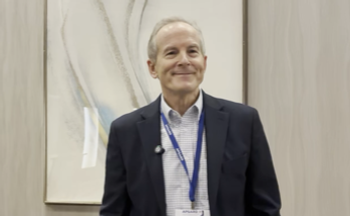
Finding Antidotes to Burnout Through Contradictory Truths
Health care workers have always been prone to stress and burnout, and the COVID-19 pandemic exacerbated the issue. What do we know about burnout and how can we prevent and address it?
CONFERENCE REPORTER
“For us to say that this has been a time of change, stress, and loss is an understatement,”
Iglewicz, assistant clinical professor of psychiatry at the University of California at San Diego, shared insights on the impact of COVID-19 on health care workers, specifically looking at burnout. In addition to the regular stressors, health care professionals faced many challenges during the height of the pandemic. Work-life balance was disrupted, there were longer shifts, and fears about personal risk and risk to family members abounded, she explained. There also were increased home-life demands associated with children’s virtual school, caregiver burdens, and a general sense of lack of control.
A recent study of COVID-19 and stressors looked at close to 21,000 health care professionals between May and October 2020 and found alarming rates of burnout and stress, Iglewicz reported.1 Investigators found that 61% feared exposure transmission, 38% reported anxiety or depression, 43% reported work overload, and 49% reported burnout. Not surprisingly, there were some gender and racial differences, she said. Higher rates of burnout were found among females and those from minoritized backgrounds.
Despite the pandemic’s impact on stress, Iglewicz reminded attendees that burnout has been an issue for years, and it has even garnered media attention due to its very real consequences. In health care, burnout can impact patients, the health care system, and the induvial, she explained. In patient care, burnout leads to worse patient outcomes and increased medical errors, Iglewicz said. On systems level, there is a drop in productivity as well as a great cost in replacing clinicians. On an individual level, burnout can lead to substance use and abuse, depression and suicidal ideation, and even an increase in motor vehicle accidents, she said.
Fortunately, there was some improvement in burnout found before the pandemic, Iglewicz explained. She shared details from a study by Tait D. Shanafelt, MD, and colleagues, that looked at rates of burnout in 2011, 2014, and 2017.2 There were a lot of interventions between 2014 and 2017, she noted, and, accordingly, Shanafelt et al found a slight decrease in burnout reports in the 2017 data. Interestingly, she said psychiatrists had some of the lowest reported rates of burnout. “But it's still unacceptable,” Iglewicz added, “as about 50% of psychiatrists are experiencing burnout.”
“Maybe we have gotten some of this wrong,” Iglewicz said of the attempts to address burnout. She used the analogy of the straw that broke the camels back. “We put our focus on trying to make that camel stronger. Tell the camel to meditate, teach that camel to be more mindful, tell that camel: You better sleep more, better eat healthier. Encourage that camel to exercise, and coach that camel to be more resilient.”
“We realized that there was a flaw,” she explained, “because we were essentially blaming the victim.”
Then the shift to address burnout fell on the habitat, Iglewicz said. Things like electronic health records, excessive workloads, and clerical burdens were addressed. Although these are important aspects, it still involved finger-pointing. She suggested it would be more productive to move to an understanding and self-introspective perspective.
Since words have meaning, Iglewicz entertained the idea of changing the term burnout. She suggested “loss of meaning.” Essentially, folks enter medicine with idealistic notions, and now their work no longer matches those notions and they have a loss of meaning in their work. Similarly, she suggested considering burnout as unresolved grief. In other words, she said, there is so much to mourn in terms of why people entered the medical field. With this definition, it allows you to face the limitations and begin to accept it.
Finally, burnout in the health care field may be code for depression, she suggested. There is no stigma associated with the term burnout; it is tossed around casually in conversations, the media, and the like. There is still, however, stigma associated with depression. Looking at the issues associated with both, Iglewicz said there really is a very fine line between depression and burnout.
So, what can be done to address burnout, loss of meaning, and unresolved grief? The first step, she said, is that clinicians must become reformed perfectionists. “The same traits that helped us get into medical school comes with a price,” she said. She noted perfectionism, detail-oriented focus, desire for control, empathy, and competitiveness. Whenever possible, she said try to turn down the level perfectionism, even in your personal life. Let the struggles, hurdles, and adversities refine you, not define you, she explained.
It is also important to engage in system level change, she added. And, although it should not be a singular focus, self-care is indeed important, she said.
She then shared 5 antidotes to burnout: find a health relationship with anger, pick your battles, practice ordinary kindness and compassion, support one another and seek out support when needed, and live with contradictory truths.
Iglewicz took the opportunity to conclude her talk with a contradictory truth that rings very true on the subject of burnout: “We're all stronger than we know. Simultaneously, we are all more vulnerable than we'd like to acknowledge.”
There’s still time to
References
1. Prasad K, McLoughlin C, Stillman M, et al. P
2. Shanafelt TD, West CP, Sinsky C, et al.
Newsletter
Receive trusted psychiatric news, expert analysis, and clinical insights — subscribe today to support your practice and your patients.







